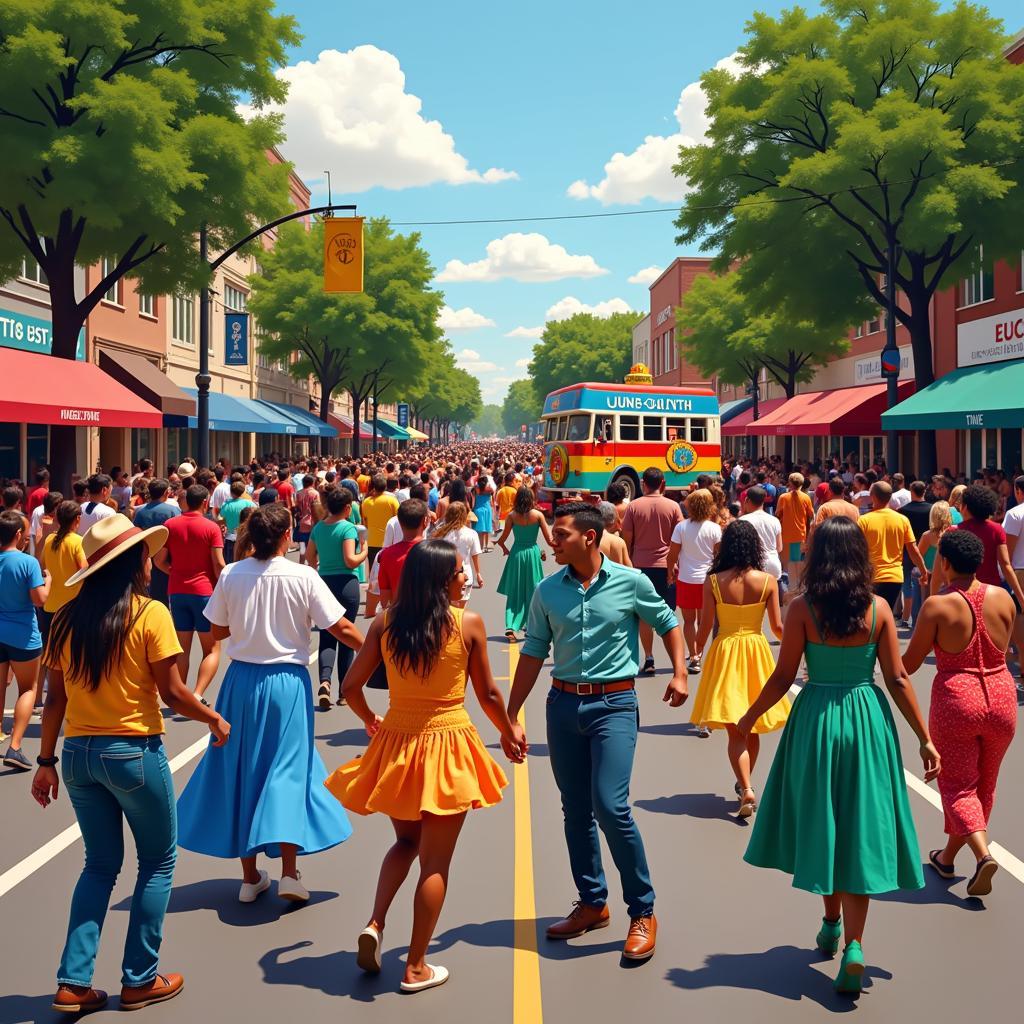Celebrating African American Culture: A Tapestry of Resilience, Creativity, and Joy
African American Celebrations are vibrant expressions of a rich cultural heritage forged through centuries of resilience, creativity, and an enduring spirit. From Juneteenth to Kwanzaa, these celebrations reflect the unique journey, struggles, and triumphs of African Americans, while also honoring the traditions and values passed down through generations.
The Significance of African American Celebrations
African American celebrations are more than just festive occasions. They are powerful reminders of the strength and resilience of a people who have overcome immense adversity. These celebrations serve as a testament to the enduring spirit of African Americans and their invaluable contributions to American society.
One of the key aspects of these celebrations is their role in preserving and transmitting cultural heritage. Through music, dance, food, and storytelling, each generation connects with its roots and passes on traditions to the next, ensuring the continuation of a rich cultural legacy.
Juneteenth: A Celebration of Freedom and Emancipation
Juneteenth, celebrated annually on June 19th, commemorates the emancipation of enslaved African Americans in the United States. On this day in 1865, Union General Gordon Granger arrived in Galveston, Texas, and announced the end of slavery, marking a pivotal moment in American history. Juneteenth is a time for reflection, remembrance, and rejoicing in the hard-won freedom that paved the way for future generations.
 Juneteenth Parade
Juneteenth Parade
How is Juneteenth Celebrated?
Juneteenth celebrations are as diverse as the communities that observe them. Family gatherings, parades, festivals, and educational events are common ways to mark the occasion. Food plays a central role, with traditional dishes like barbecue, red velvet cake, and watermelon symbolizing the sweetness of freedom.
Kwanzaa: A Celebration of Community and Cultural Pride
Kwanzaa, a seven-day celebration from December 26th to January 1st, honors African heritage and cultural values within the African American community. Created in 1966 by Maulana Karenga, Kwanzaa is based on seven principles, known as the Nguzo Saba: Umoja (Unity), Kujichagulia (Self-Determination), Ujima (Collective Work and Responsibility), Ujamaa (Cooperative Economics), Nia (Purpose), Kuumba (Creativity), and Imani (Faith).
Kwanzaa Traditions and Symbols
During Kwanzaa, families decorate their homes with African art and symbols, light candles on the Kinara, and exchange meaningful gifts. Each day of Kwanzaa focuses on one of the seven principles, encouraging reflection and discussion on their relevance in daily life.
Beyond Juneteenth and Kwanzaa: Other Notable Celebrations
In addition to Juneteenth and Kwanzaa, numerous other celebrations highlight the richness and diversity of African American culture. These include:
- Black History Month: Observed every February, Black History Month celebrates the achievements and contributions of African Americans throughout history.
- Martin Luther King Jr. Day: Honoring the legacy of Dr. Martin Luther King Jr., this day is observed on the third Monday of January, commemorating his fight for racial equality and social justice.
- African American Church Hats: Beyond their religious significance, hats hold a special place in African American culture, often serving as expressions of personal style, creativity, and cultural pride, particularly within the context of church services and events. You can explore more about the fascinating history and significance of African American church hats here.
African American Celebrations: A Testament to Enduring Spirit
African American celebrations offer a glimpse into a vibrant culture shaped by history, resilience, and creativity. These occasions are not just about remembrance but also about celebrating the present and inspiring future generations. They are a testament to the enduring spirit of African Americans and their continued journey towards equality and justice.
FAQ
1. What is the significance of red, black, and green in African American celebrations?
These colors hold symbolic meaning: red represents the blood shed for liberation, black symbolizes the people, and green represents the land of Africa.
2. What are some traditional foods served during Kwanzaa?
Traditional Kwanzaa dishes often include Gumbo, Jambalaya, black-eyed peas, and cornbread, reflecting the cultural heritage of the African diaspora.
3. Is Kwanzaa a religious holiday?
Kwanzaa is a cultural holiday, not a religious one. It is open to people of all faiths who want to celebrate African American heritage and culture.
4. Are there any online resources for learning more about African American celebrations?
Yes, many websites and organizations provide valuable information about these celebrations. You can find information on the history, traditions, and significance of these events.
5. How can I get involved in celebrating African American culture?
Attend local events, support African American businesses, and engage in respectful dialogue to learn more about the culture and its significance.
Need further assistance? Please contact us at:
Phone: +255768904061
Email: kaka.mag@gmail.com
Address: Mbarali DC Mawindi, Kangaga, Tanzania
We have a dedicated customer support team available 24/7 to assist you.